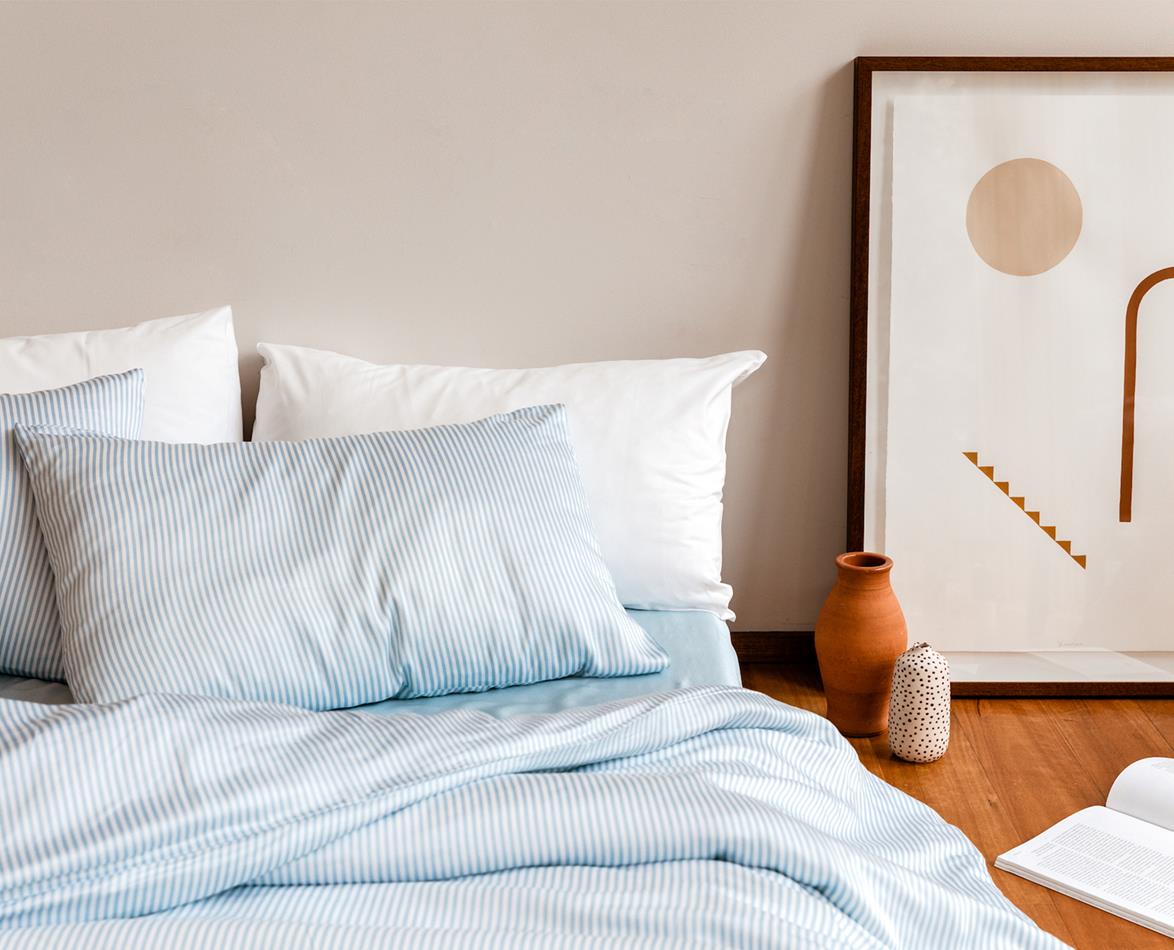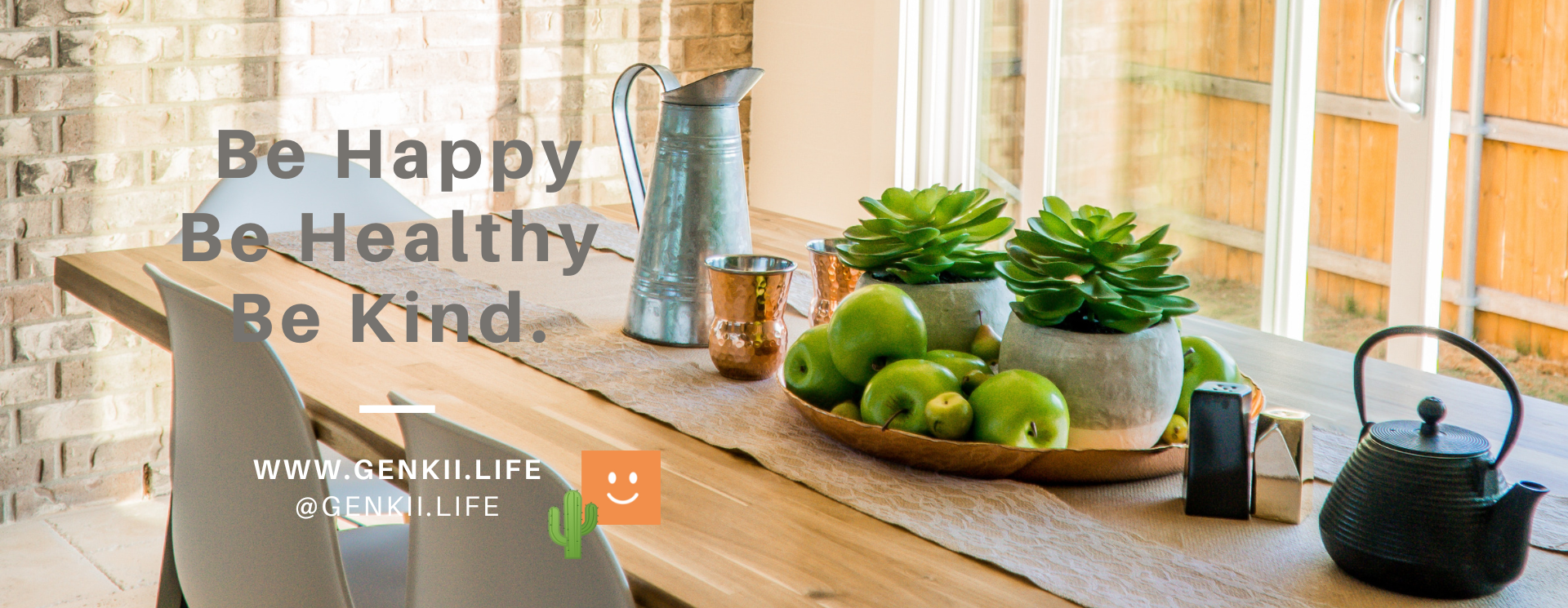
What's best? Cotton, linen, silk or bamboo bed linen?
Editorial TeamWhen it comes to shopping for sheets, there's one important factor to consider before you dive into thread counts and that's deciphering which fibre best suits your sleep style. Not sure where to start? We've outlined the pros and cons for the five main options - cotton, linen, silk, bamboo and eucalyptus - below.

COTTON
Cotton is the most popular fibre for bedding, but it's also one of the most diverse so it pays to know what you're looking for. At the top end of the scale is Egyptian cotton bed linen which is crafted from hand-picked, ultra-fine fibres resulting in seriously soft and smooth bedding that typically has a minimum thread count of 200. It can be lower in some cases, but you're best looking for a minimum TC of 200 for a luxurious feel. The combination of high thread count and quality yarn means it's the strongest, most durable cotton on the market - with a price tag to match.
Pima cotton is a good second choice if want that luxe hotel effect at home, but you're working within a budget. It's an extra-long staple (ELS) cotton meaning you get the same softness and longevity that you get with Egyptian cotton, but at a slightly cheaper price point due to geography - Pima is usually produced in the States. If you've got your heart set on Stateside sheets, look for the Supima® trademark, a guarantee that what you're buying is 100% American Pima Cotton.
Anything marked 100 percent cotton is typically upland cotton which, whilst great value, is more likely to pill, feel a little coarser and have a shorter shelf life that the other options.
"Certified organic cotton is a great fibre for bedding," says Joanna Ross, GM of Innovation at Sheridan. "Compared with standard cotton, organic cotton is a more renewable source, with traceable origins and more environmentally sound practices. Organic cotton imposes limitations regarding use of pesticides and other chemicals resulting in more sustainable agricultural and manufacturing processes."
If you're after organic cotton, look for products that have been verified from a governing body such as Australian Certified Organic (ACO) or Global Organic Textile Standard (GOTS) – there will be a logo on the packaging – to ensure the bedding is the real deal and meets organic textile processing requirements.
](https://d3lp4xedbqa8a5.cloudfront.net/s3/digital-cougar-assets/homes/2020/02/03/1580692250562_S4W3B110C194-001white11700x1700.jpg?width=690&height=&mode=crop&quality=75)
LINEN
If you've been finding it hard to sleep on these balmy summer nights, linen sheets are here to save the day. Linen is woven from flax fibres which have a hollow core meaning it boasts both high air permeability and heat conductivity properties (translation: it can keep you cool when you're hot and warm when you're cold).
Linen is a highly breathable fabric that can also absorb up to 20 percent of its weight in moisture before feeling damp – another pro in summer's relentless heat - and it's also very durable so if you're looking to create the perfect bed with sheets that can go the distance, you've found them. Pure linen bedding is also considered a family-friendly option as linen naturally repels dirt and bacteria, however, as you'd expect with its strong selling points, linen is typically quite expensive, though many argue it's a worthy investment.
"French Linen is the best linen you can buy, says Georgie Cavanagh, one half of Australian boutique bedding company, Carlotta + Gee.
"This is because of the temperature in the air which allows the flax plant to grow at its peak. Linen is also grown in India however due to the heat, often the flax snaps and doesn't get to grow as long which means it isn't as strong. Look out for the GSM which is how linen quality is measured."
](https://d3lp4xedbqa8a5.cloudfront.net/s3/digital-cougar-assets/homes/2019/07/05/1562290052988_CARLOTTAGEEBYRON-BAY-1328.jpg?width=640&height=&mode=crop&anchor=topcenter&quality=75?width=690&height=&mode=crop&quality=75)
OUR FAVOURITES
](https://d3lp4xedbqa8a5.cloudfront.net/s3/digital-cougar-assets/homes/2021/10/19/1634623156544_bed-threads-khaki.jpg?width=690&height=&mode=crop&quality=75)
](https://d3lp4xedbqa8a5.cloudfront.net/s3/digital-cougar-assets/homes/2021/10/19/1634623186162_eva-rust.jpg?width=690&height=&mode=crop&quality=75)
BAMBOO
Made from the world's fastest growing plant, bamboo bedding isn't just sustainable, it's considered environmentally-friendly to produce, requiring no pesticides to grow and using less water than cotton production. Though bamboo does still have to undergo intensive chemical processes to turn it from raw bamboo pulp into a textile. The end result, bamboo bed linen, is soft, cool, hypoallergenic and antibacterial making it a popular pick.
Bamboo bedding should never claim to be '100% bamboo' as other fibres are needed to turn it into a textile. Instead you'll see 'bamboo viscose' or 'viscose from bamboo' or 'bamboo rayon' bedding, but 'bamboo lyocell' bed linen is fast gaining popularity, too. It's at the more boutique end of the scale as it boasts a few added benefits such as preventing the growth of odour-causing bacteria (read: fresh sheets for longer), however bamboo viscose is more readily available and more affordable.
Ettitude, a Melbourne-born sustainable lifestyle brand, makes bedding and pyjamas from lyocell crafted from 100% organic bamboo.
The brand recently sent off its two signature bedding types off to the leading inspection, verification and certification company SGS to test how the textiles responded to both bacteria and how they work as thermoregulating fabrics.
The tests showed that Ettitude's signature Bamboo Charcoal Lyocell reduced bacteria by over 99.9%. In the same process, SGS found that cotton did not reduce bacteria at all (0% reduction) and actually increased bacteria cultures. In addition, Ettitude's signature Bamboo Lyocell textile was found by SGS to be "significantly more cooling on the skin than cotton." So, if you're on the hunt for the best bedlinen to sleep in during summer, bamboo might just be your best bet.
](https://d3lp4xedbqa8a5.cloudfront.net/s3/digital-cougar-assets/homes/2020/02/03/1580689207281_Ettitudeholiday0399copy.jpg?width=690&height=&mode=crop&quality=75)
OUR FAVOURITES
](https://d3lp4xedbqa8a5.cloudfront.net/s3/digital-cougar-assets/homes/2021/10/19/1634624006667_adairs-bamboo.jpg?width=690&height=&mode=crop&quality=75)
](https://d3lp4xedbqa8a5.cloudfront.net/s3/digital-cougar-assets/homes/2021/10/19/1634624068717_ecosa-bamboo.jpg?width=690&height=&mode=crop&quality=75)
SILK
Silk is known for its antimicrobial and hypoallergenic properties making it an ideal sleeping solution for allergy sufferers and those with skin conditions such as eczema. Doubting its lightness will keep you warm? The luxurious fabric is considered a better insulator than Egyptian cotton.
There are two main types available: tussah silk and cultivated mulberry silk, which is by far the highest quality. The latter produces smooth, fine-textured bed linen that is extremely durable, whilst bedding made with tussah silk has a shorter shelf life and a coarser texture. When buying silk bedding, you should factor in momme (mm) weight, the traditional silk measurement that indicates quality. As a guide, the higher the momme weight, the better the quality with most good-quality bedding ranging between 19-25 mommes.
As with silk clothing, caring for silk bed linen isn't exactly a breeze. You need to hand wash the bedding at first and when you do upgrade to machine washing, you should ideally use a cool wash and gentle spin cycle to keep the fabric in tip-top condition. While silk bedding probably isn't considered family-friendly, beauty experts extol the virtues of silk pillowcases for reducing everything from rosacea, frizz and wrinkles.
EUCALYPTUS
Another natural and sustainable material taking the bedding world by storm is lyocell (also known as TENCEL). Tencel or lyocell is made from wood cellulose, often obtained from eucalyptus trees that are grown on farms, meaning no koalas are harmed or displaced by the production of this material. The process used to grow and create TENCEL fibers is eco-friendly, and has won awards for its low environmental impact. TENCEL eliminates the negative environmental impacts of traditional fiber processing, using new sustainable technologies. No nasty chemicals or water-wasting irrigation systems are needed to grow eucalyptus trees making TENCEL one of the most eco-friendly fabrics available.
Eucalyptus fibre is naturally hypoallergenic, and a great regulator of temperature. The weave is strong and durable, so your sheets maintain that brand new feel for longer.
Written by Olivia Clarke

